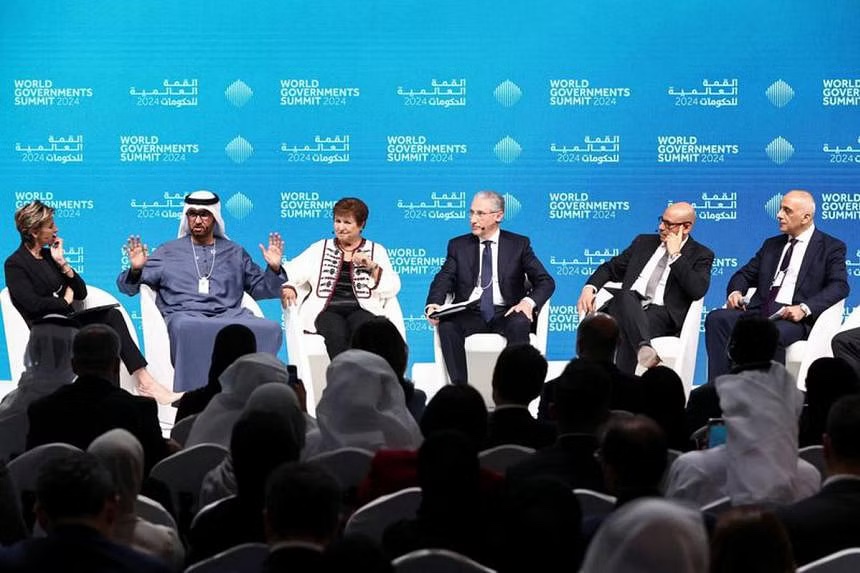COP hosts UAE, Azerbaijan, Brazil announce climate ‘Troika’

In a significant move aimed at bolstering international efforts to combat climate change, the past and future hosts of the United Nations climate talks, the United Arab Emirates (UAE), Azerbaijan, and Brazil, announced on Tuesday the formation of a “troika.” This alliance is dedicated to advocating for an international agreement aimed at limiting global warming to 1.5 degrees Celsius.
The decision comes following the hosting of COP28 in Dubai by the UAE last year, with Azerbaijan scheduled to host this year’s summit, followed by Brazil in 2025. Mandated by 198 signatories to the Dubai agreement, these three nations are tasked with collaborating on a roadmap to achieve the critical climate goal of limiting global warming to 1.5 degrees Celsius, a target under severe threat due to global greenhouse gas emissions.
Sultan Al Jaber, the president of COP28, emphasized the significance of the Troika in maintaining focus on the 1.5-degree Celsius target, asserting, “The Troika helps ensure we have the collaboration and continuity required to keep the North Star of 1.5°C in sight — from Baku to Belem and beyond.”
Despite current climate pledges, the world remains on a trajectory to warm between 2.5 and 2.9 degrees Celsius over this century, according to estimates by the United Nations. The Intergovernmental Panel on Climate Change (IPCC) projects that the 1.5-degree Celsius limit will likely be surpassed between 2030 and 2035.
The final agreement reached at COP28 underscores the pivotal role of the troika partnership in enhancing international cooperation and the enabling environment to stimulate ambition in the next round of nationally determined contributions. The agreement aims to scale up action and implementation during this critical decade to keep the 1.5°C limit within reach.
At COP28, the global community committed to transitioning away from fossil fuels, but challenges remain in unblocking financial flows to developing countries, a major point of contention in negotiations. This issue is expected to be a focal point of COP29 in Baku, where a new target for financial support provided by developed countries for climate change is anticipated.
Rich countries are approximately two years behind schedule in meeting their initial pledge of $100 billion in annual climate funding by 2022, according to the Organisation for Economic Co-operation and Development. The UN’s high-level expert group on climate finance has emphasized the need for developing nations (excluding China) to increase spending on clean energy and climate resilience to $2.4 trillion annually by 2030, four times the current levels.
Mukhtar Babayev, president-designate of COP29, affirmed the commitment to leveraging the host country’s role as a bridge builder between developed and developing nations to accelerate efforts aimed at achieving the 1.5-degree target. Central to this endeavor will be the establishment of a new climate finance goal that reflects the scale and urgency of the climate challenge.
